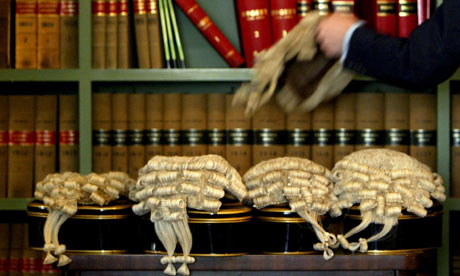
•Bar, Bench indicted for high rate of impunity in society
ANTI-GRAFT agencies and some public officials yesterday harped on the need to cleanse Nigeria of traces of corruption, especially in the judicial system.
Chief Justice of Nigeria (CJN), Mahmud Mohammed, and representatives of the Independent Corrupt Practices and other related offences Commission (ICPC) and the Economic and Financial Crimes Commission (EFCC) warned lawmakers-elect against being pressured into some corruption pitfalls in attempts to satisfy their constituencies. They stressed that unwholesome activities could lead judges and lawmakers into unpalatable circumstances.
Speaking at the swearing in of Justice Amiru Sanusi into the bench of the apex court, the CJN charged judges to be fair in dispensing justice to all Nigerians.
Urging judges to be fearless and incorruptible, Justice Mohammed said they should always take their oath of office and oath of allegiance in fidelity and affirmation of incorruptible commitment and promise to the Almighty to dispense justice without fear or favour, affection or ill-will.
He said that, as judicial officers in the temple of justice, Judges must discharge their duties without prejudice to the direction the political winds are blowing.
In the same vein, the ICPC and the EFCC warned lawmakers-elect against being pressured into some corruption pitfalls as they struggle to impress their constituencies and political masters, noting that these moves could get them into unpalatable circumstances.
Chairman of ICPC, Ekpo Nta, who spoke at the induction certificate course organised for newly elected lawmakers in Abuja, had advised them to educate their constituencies on the limitations of the powers of legislators, especially in the areas of contract awards, appointments into public offices and others.
According to Nta, some of the lobbying and recommendations from legislators on contract awards and public office appointments constitute abuse of public office for private gain. Most of these, he said, are duties of the executive to which there are laws guiding the conduct.
Responding to questions from The Guardian after the session, Nta stated that it was important to sensitise the legislators-elect on the possible pitfalls they may encounter in discharging their duties.
Representative of the EFCC Chairman, Osita Nwajah, the Deputy Director at the Public Affairs Department, noted that the commission would have to apply section 7 of the Establishment Act if it is noticed that any legislator lives beyond his or her means. He added that it would be easy for the EFCC to move in, in such a situation without petitions since the income of



